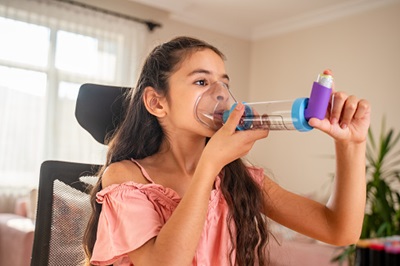The Cancer, Cardiovascular and
Pulmonary Disease (CCPD) Grant Program
FY19-FY23 Funding Cycle Overview
CCPD Grant Program FY19-FY23 Funding Cycle Overview
Executive Summary
On behalf of the grantees, staff, and the Cancer, Cardiovascular, and Pulmonary Disease (CCPD) Review Committee, the CCPD Grant Program is pleased to share this overview of the work and accomplishments of the CCPD grant portfolio from July 1, 2018, to June 30, 2023.
The CCPD Grant Program provided funding across Colorado, distributing more than $49 million to 22 grantee projects. Sixteen projects were funded for all five years and are highlighted below. The 22 projects spanned different focus areas and 12 strategies:
Policy and environmental change
- Lung Cancer Prevention - Radon Training and Technical Assistance
- Built Environment
- Breastfeeding Friendly Environments
- Healthy Foods and Beverages
Community-clinical linkages
- Self-Measured Blood Pressure Monitoring (SMBP)
- National Diabetes Prevention Program (NDPP)
- Diabetes Self-Management Education (DSME)
- Home-based Asthma Management
- School-centered Asthma Management
- Medication Optimization
Health Systems
- Clinic Systems Quality Improvement (CSQI)
- Community Health Worker Workforce Development
The FY19-23 funding cycle contributed to advancements in cancer, cardiovascular, and pulmonary disease prevention and control throughout Colorado, including but not limited to:
- Increased access to and improved active transportation safety (walking, biking, rolling, transit), including distributing micro-grants for community projects.
- Increased the number of worksites with breastfeeding-friendly policies and provided breastfeeding education support.
- Increased access to colorectal cancer screening.
- Improved cardiovascular risk factors for participants enrolled in management and prevention programs.
- Improved asthma control and reduction in emergency department visits among participants enrolled in asthma management programs
- Increased the number of local policies passed aimed at decreasing the consumption of sugar-sweetened beverages, supporting food access, and strengthening food networks.
During this grant cycle, CCPD grantees persevered through significant challenges, including budget cuts, the COVID-19 pandemic, and devastating levels of food insecurity, unemployment, and isolation in our communities. The CCPD Grant Program appreciates grantees' continued efforts to work within their agencies and communities to advance public health.
Thank you for your continued efforts to advance the health and well-being of the people of Colorado.

AsthmaCOMP Success Story
Students across Colorado are receiving better asthma care through the AsthmaCOMP program thanks to funding from the Cancer, Cardiovascular Disease, and Pulmonary Disease (CCPD) Grant program. Known officially as the Colorado Comprehensive School-Centered Asthma Program, the AsthmaCOMP program focuses on elementary schools with high asthma prevalence.
The CCPD grant program, part of the Colorado Department of Public Health and Environment (CDPHE), has funded AsthmaCOMP nearly every year since 2005.
Read more about the AsthmaCOMP success story

Healthy Beverage Partnership Success Story
The Healthy Beverage Partnership, a collaborative comprising health departments and community partners, is making strides in Colorado by promoting beverages with lower sugar content to children and families. Their efforts are funded by the Colorado Department of Public Health and Environment’s Cancer, Cardiovascular, and Pulmonary Disease (CCPD) Grant program, which aims to reduce the prevalence of chronic diseases and address health inequities. The partnership is the only collaboration in the state focused on reducing access to sugary drinks, such as sweet teas, soda, sports drinks, juice, and more.